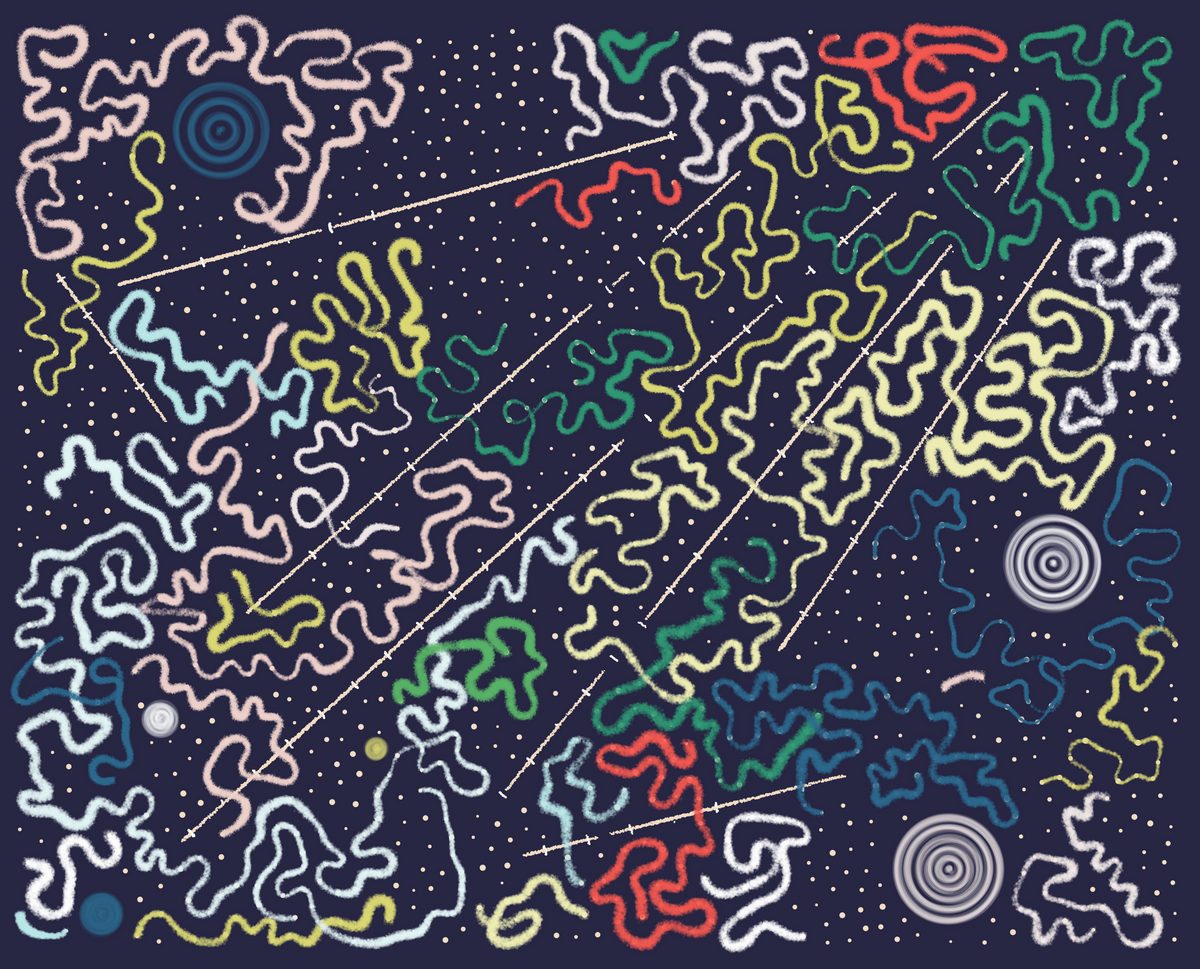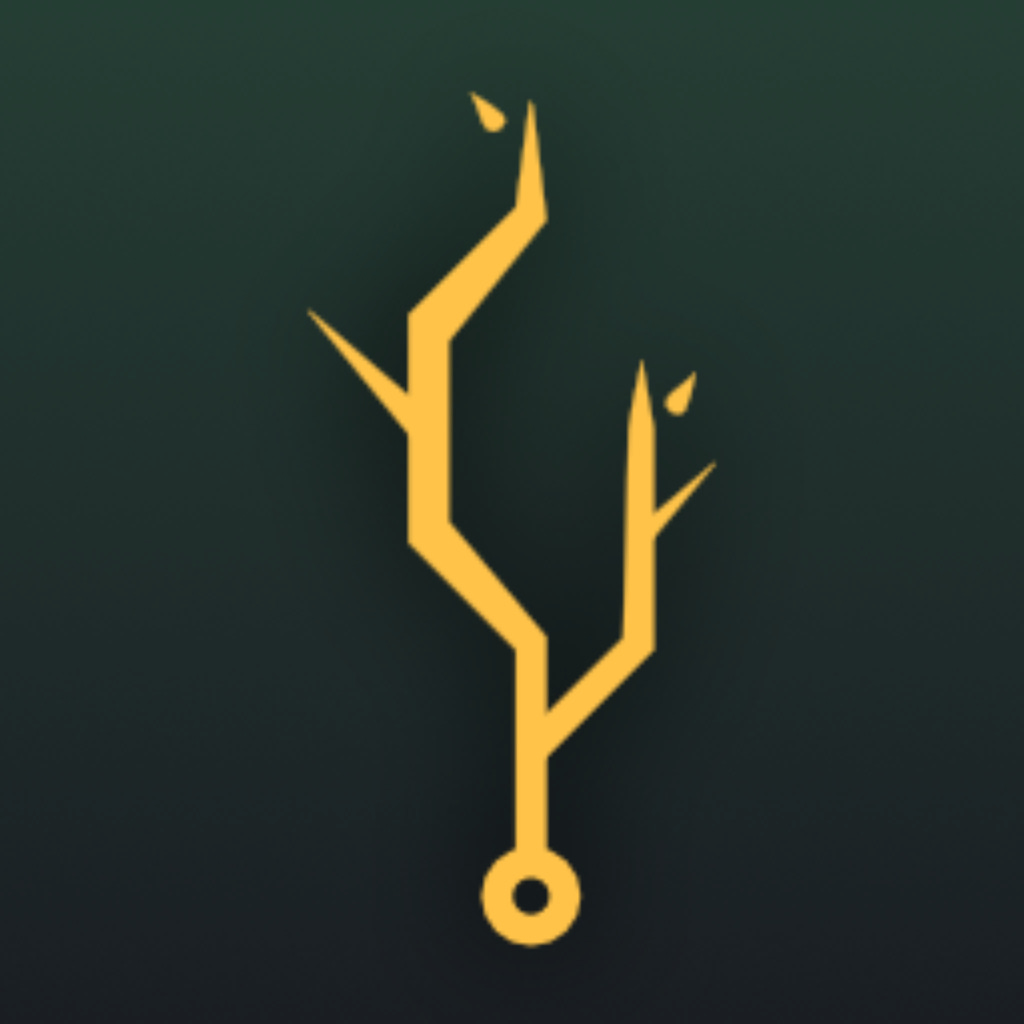Hey everyone 👋 and welcome to all new subscribers that joined since last week! Thanks for signing up and joining along for the ride!
This is the weekly Gorilla Recap - a newsletter in which I go over everything that I found noteworthy from the past week in tech, generative art, creative coding and AI.
Hope you have a good stay!
Genart Updates
It's been another fantastic week for creative coding and generative art! There haven't been this many relevant updates in a single week since the beginning of the newsletter!
LeRandom - Generative Art Timeline Ch. 4
LeRandom's generative art timeline is starting to take shape! We're entering the 1960s - arguably one of the most important eras that shaped the field of generative art in the way that we know it today:


My knowledge of the early days of generative art is at best hazy, and I really don't know much about what happened in the 80s and 90s. Seeing the important events and characters of that era listed out in a chronological manner really helps fill out these empty patches. When I wrote about Vera Molnar's early life, it was quite a challenging task to find and collect information from different sources dispersed across the internet. Sifting through dozens of interviews, it seemed like I was piecing together a puzzle.
LeRandom's efforts to this end are invaluable. I'm looking forward to the following chapters and to more articles that tackle the historical and philosophical aspects of generative art, as an artform.
Melissa Wiederrecht's 'Is it Art?'
Something that completely flew under my radar where two posts from Right Click Save, one written by herself and another an interview with her.
Formulating every sentence as a question, Melissa put together a beautiful piece of writing. She rattles at the very foundation of what we consider digital art in this day and age, and the chain of questions slowly reveals itself as an introspective into some of the experiences she's made navigating the digital and genart space over the course of her career. She raises questions about the medium, about the process, about social media, and so many more things that I believe many a digital artist has grappled with at some point:

Complementary to this, RCS published an interview with Melissa diving into her artistic background: from early beginnings, where she began to invent her own drawing systems at a young age, up until the present day where she has developed her own unique generative identity:

Melissa Wiederrecht is currently one of the most prolific generative artists in the space, churning out one stunning artwort after another. Many lessons can be learned from these two posts, I highly recommend having a look at both of them.
Tracing the Line - Vetro Editions
Following their stellar handheld Augmented Reality Experience - A.R.E - this November Vetro Editions returns with another collaboration with Generative Hut. This time round, their new book revolves entirely around the pen-plotter, it's historical and contemporary use in generative art, all while featuring some of the artists that have made heavy use of the wonderful machine:
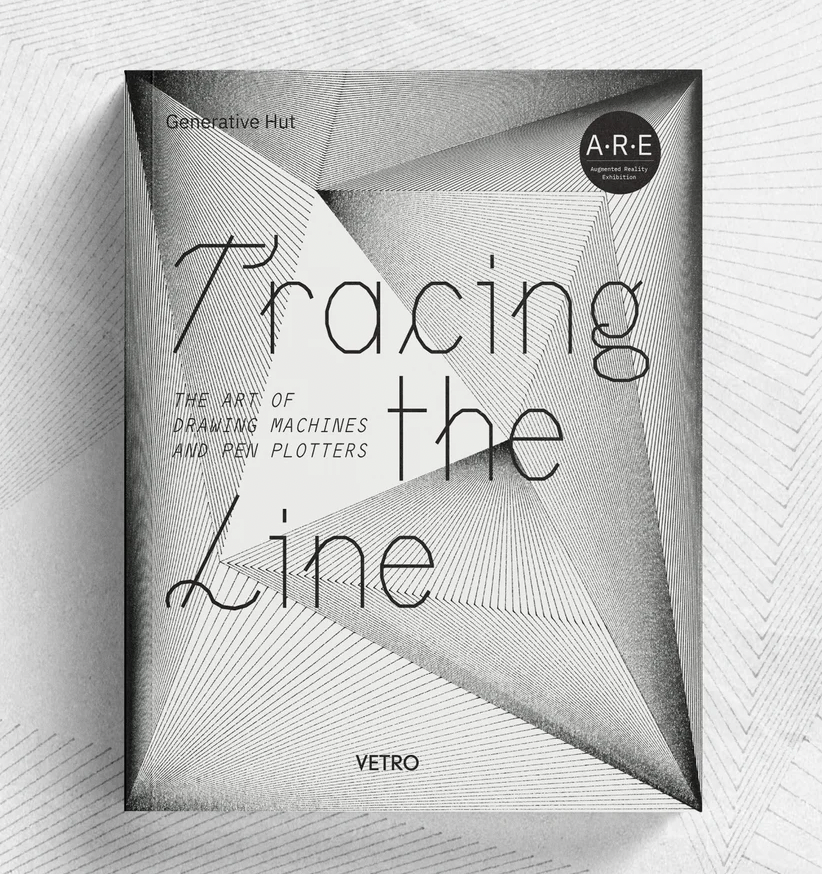
Who doesn't love watching plotters work their magic?
This isn't a sponsored segment - I just think that Vetro Editions has made some fantastic generative art books. Hence the shoutout. In my meagre genart book collection I already have two of theirs: their previous A.R.E book, as well as Matt DesLauriers' Meridian Artbook for which they acted as a publisher.
P5Js gets some Updates
This week there's also two new things worth mentioning regarding the lovely P5 library.
Firstly, a P5 text library built by Arthur Cloche that brings a whole slew of new text manipulation functions to the table. If you've ever worked with text in P5, you'll know that the methods that come out of the box are a bit clunky. Stretching and curving text are two new things that can be done with Cloche's library which p5 doesn't natively support, and are not very straightforward to achieve if you set out to code them from scratch:
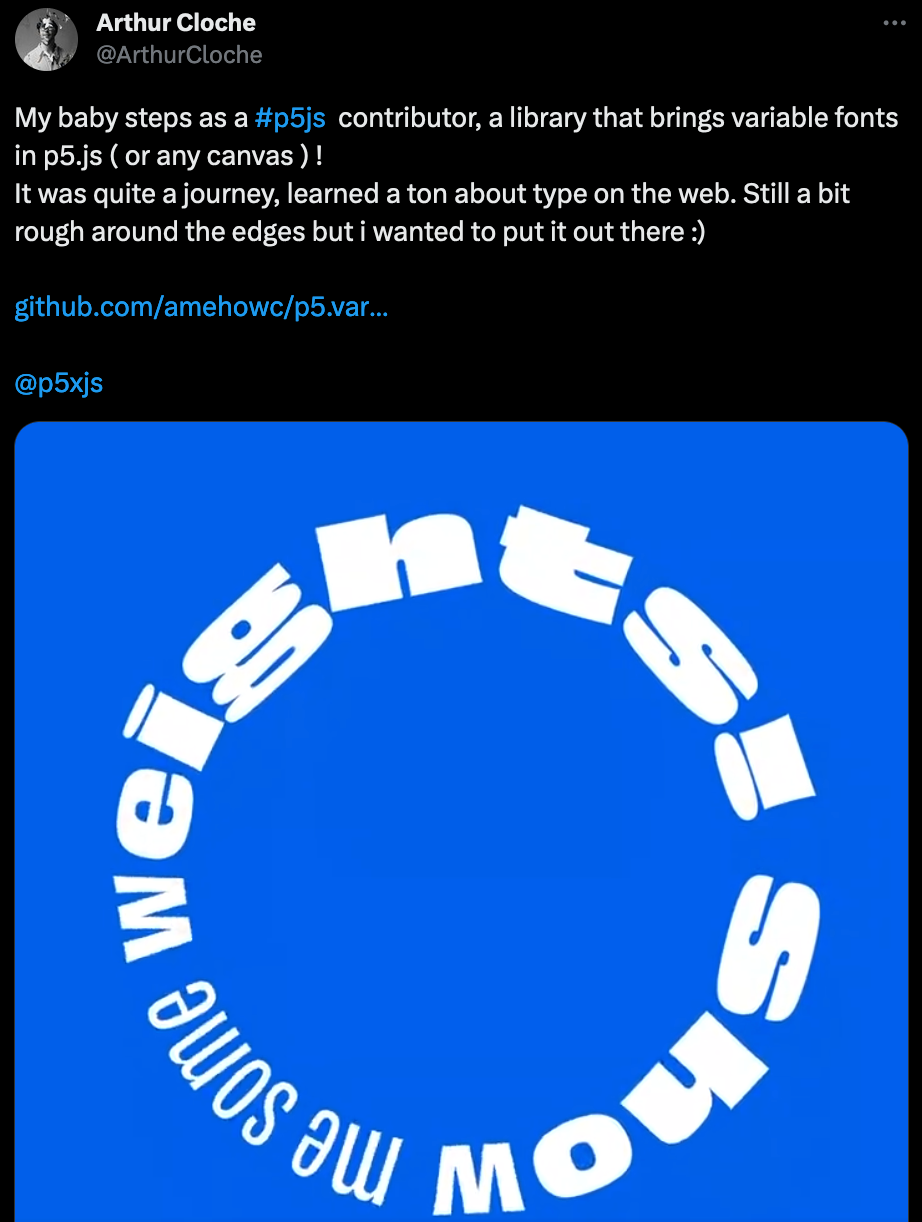
Another update is Justin Wong's GSOC (Google's Summer of Code) contribution, that adds hardware acceleration to P5's filter function. The filter() function is notoriously slow due to the per pixel operations that it has to compute, but this is no longer so - by making use of the GPU it's now blistering fast!
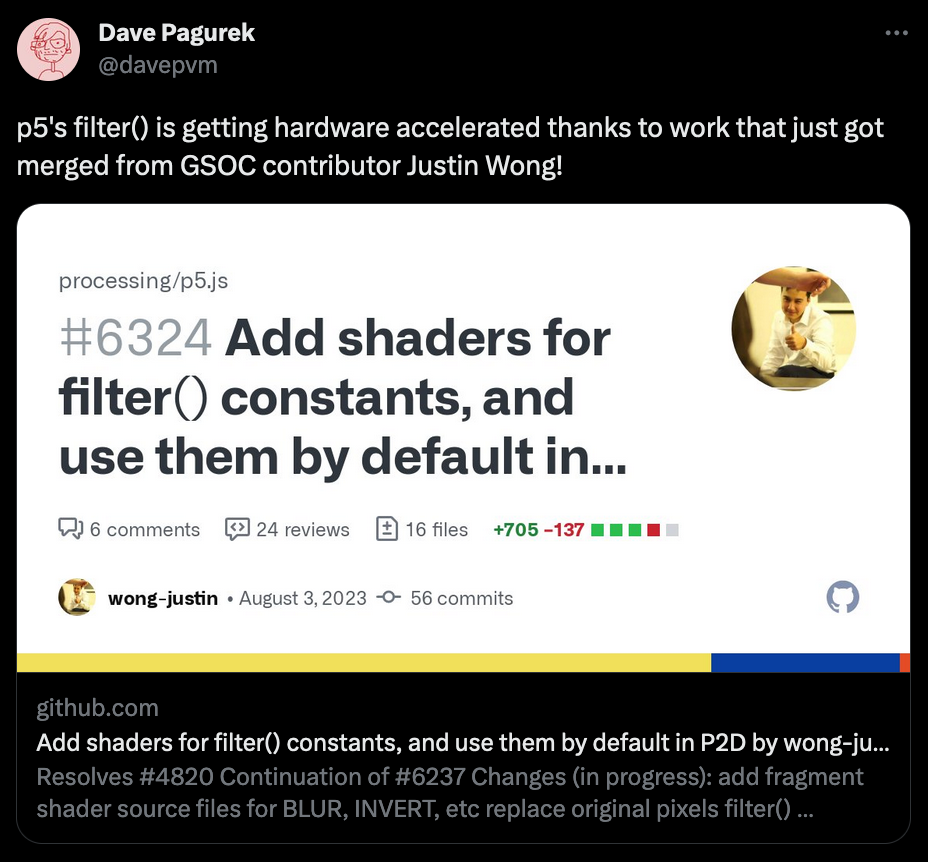
Alba Concludes it's beta phase
Alba concludes it's beta phase, with 27 beautiful pieces minted on the Ethereum blockchain, and takes a little break before opening up for everyone to mint their projects on the platform:
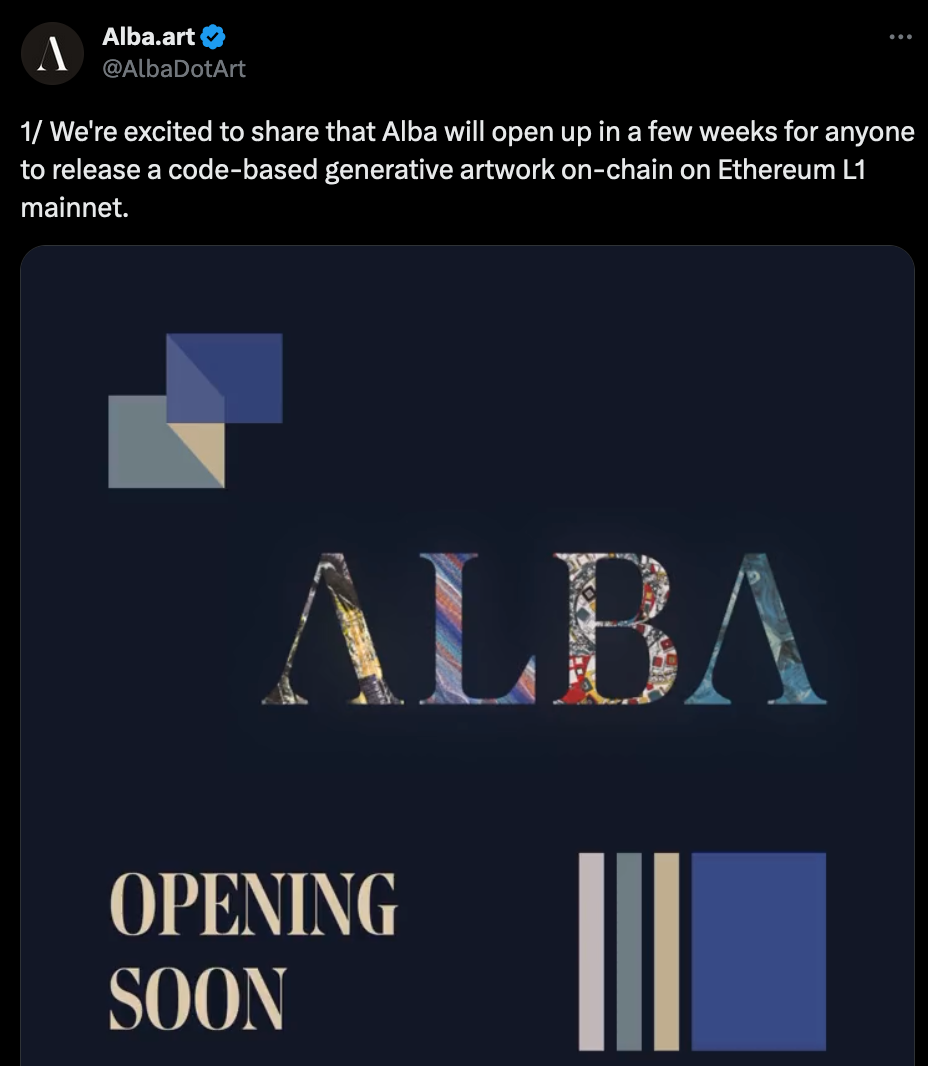
Now There's None of You Left by Xalted
One stunning piece of generative art from the past week is Xalted's newest project titled Now There's None of You Left over on fxhash:
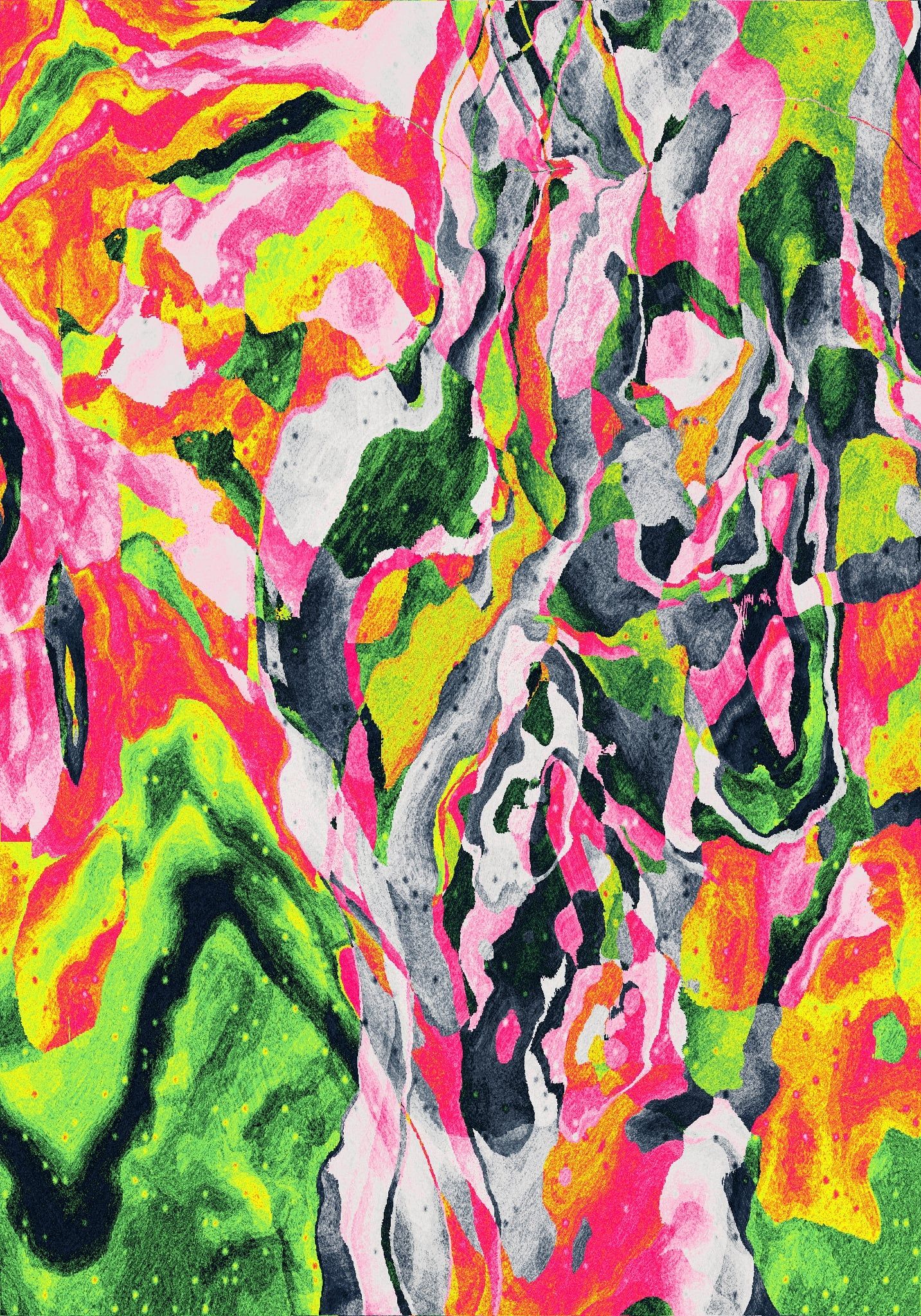
Asking about the process over on Twitter, Xalted pointed me to a writeup for his previous project. The work is done Cables.gl, which is a node based webgl environment. It seems that it is a quite effective tool for the purpose of generative art:
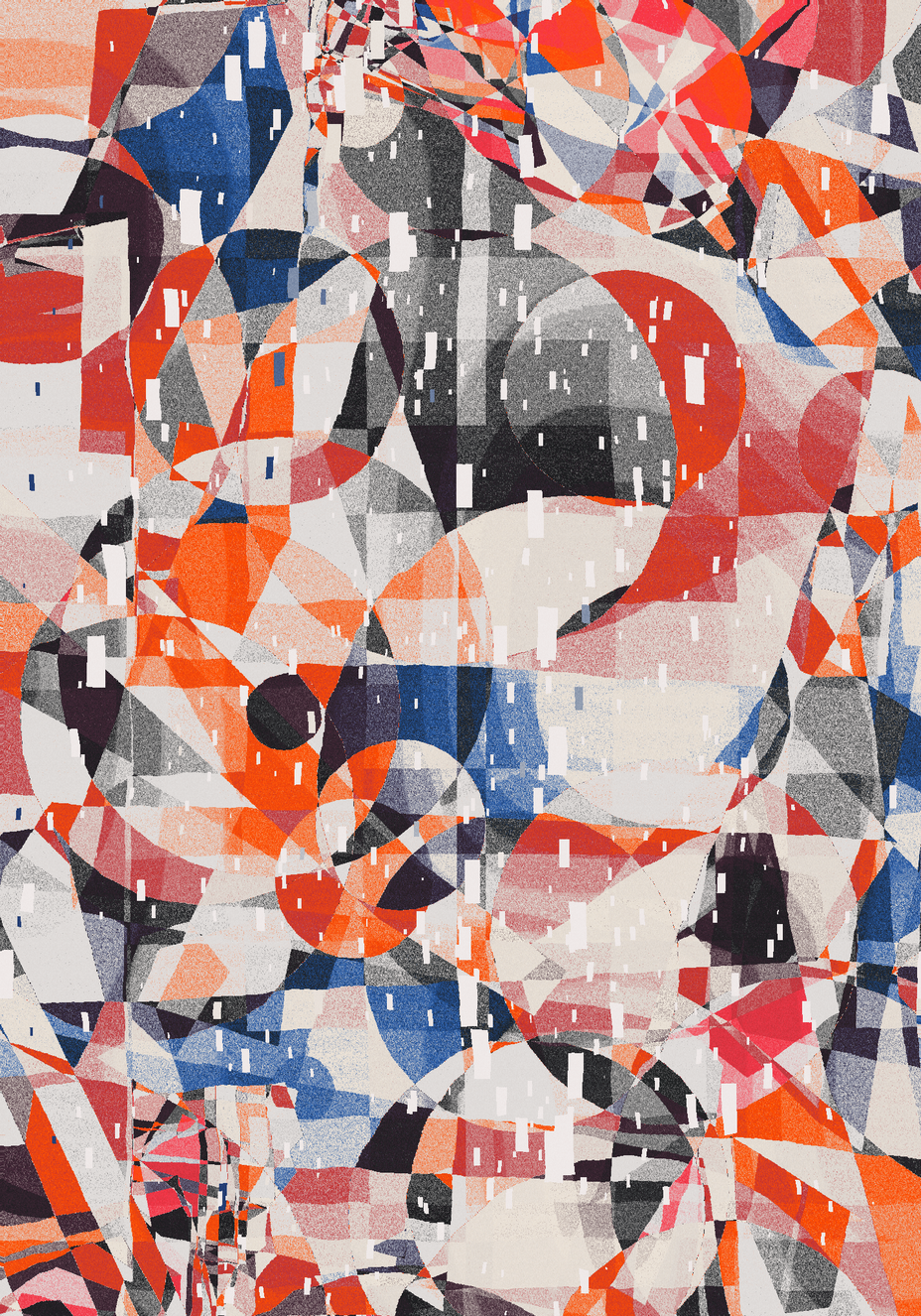
Xalted explains how the varied compositions emerge from the layering of intersecting shapes and then feeding color into them.
Interesting Reads
We also have quite a chunky list of interesting reads and things to watch this week!
Snake Game inside of a QR Code
You've probably heard about code golfing, but have you ever heard of a game in a QR code? Inspired by MattKC's video Can you fit a whole game into a QR code?, Elisha Hollander set out on a mission to actually make it a reality. Recently they finally managed to bring down the size of their snake recreation, coded in x86 assembly, down to 75 bytes.
After making ripples on the r/programming subreddit, this also prompted a feature over on the Hackaday page:
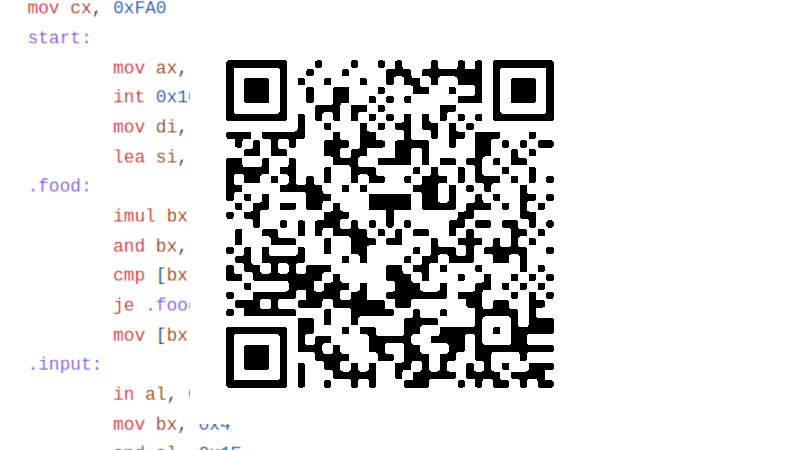
The original video:
Factorio, Mutation, & Lossiness
While we're on the topic of video games, here's an article by Ryan Fleury on Factorio. I never played Factorio myself, but I've watched quite a few letsplays, and it looks like a really intricate, fun and engaging experience.
Factorio is essentially a strategy game in which you build different kind of factories to process materials, transform them, then deliver them to other factories to produce other kinds of resources and so on. Ultimately feeding these resources into the construction of units to fend against the creatures of the foreign planet that you find yourself on.
And apparently Factorio has a lot of parallels to programming. In a way playing the game feels like programming. Ryan Fleury elaborates that Factorio has a lot to do with the concept of "data tranforms". One way of thinking about programming, is that it can be seen as an act of transforming one kind of data into a different kind of data. Several problems can emerge when handling data, such as lossiness and throughout issues. Building your factories and conveyors in Factorio have similar emergent properties:s
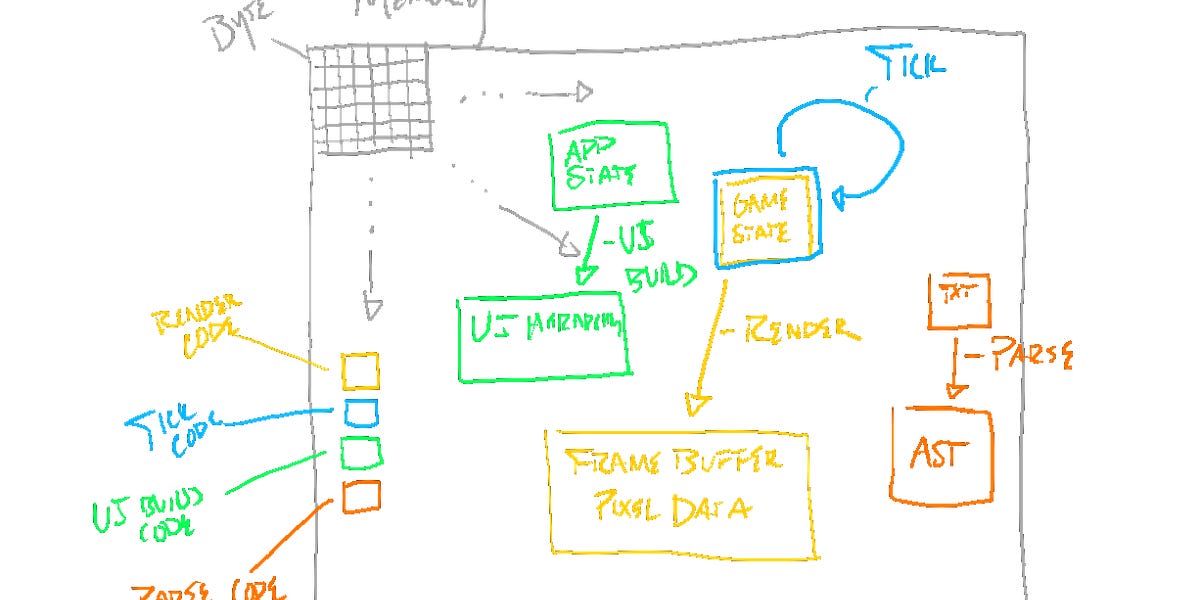
Shining a Light on the Digital Dark Age
Every few weeks or so I take some time to clean up the folders that I have sitting on my desktop, and it always takes me more time than expected. It's just always the case that I've accrued way more files than I initially thought, and often there simply isn't a good way to organize them.
Data preservation is also a real problem at a much larger scale. While humanity churns out content at an exponentially increasing rate, what efforts are directed towards the preservation and longevity of this data? It's already difficult to find things from just a few years back - in another decade or two we might see more and more parts of the early internet vanish forever.
For instance, in 2019 MySpace succumbed to irreversible data loss during a server migration, losing millions of songs and images that once lived on the platform. Adrienne Bernhard shines light on this growing problem, and discusses some of the efforts that are currently being done to counteract it:

Paypall Password Pandemonium
Max Levchin, co-founder of Paypall, recounts arriving in America for the first time, after having fallen in love with cryptography. Seemingly by chance he comes across Shamir's secret sharing method, later on implementing it as a mechanism for unlocking the Paypall servers.
Shamir's secret sharing is essentially a method for transmitting information between a group of friendly actors, such that the secret can only be decoded when N people of that group put their keys together. Levchin tells the story of what could have potentially been a company ending incident:

Words of Advice from Bjarne Stroustrup
I also wanted to share these insightful words from Bjarne Stroustrup, whom you might know better as the creator of C++. His advice to younger programmers is to not overspecialize and diversify your skillset:
AI Corner
R.I.P. Doug Lenat
Doug Lenat was a titan in the field of AI. Over the past 40 years Lenat founded and directed of the Cyc project, an ontology that aims to capture all of the rules that describe how the world works in an attempt to codify common sense reasoning for the purposes of AI models. Although never becoming a huge commercial success, but an increasingly important effort now that we are etching our way towards general artificial intelligence.
Gary Marcus, a collaborator and friend of Lenat talks about the efforts that have gone into Cyc and Lenat's vision for Cyc:

Together they wrote a final paper titled Getting from Generative AI to Trustworthy AI: What LLMs might learn from Cyc.
ChatGPT and Emotional Outsourcing
Kelly Weirich tackles the topic of emotional writing using LLM's like chatGPT and the generally negative sentiment towards it. When writing something like a congratulatory message, a message of condolences or even a love letter, it is often difficult to find the right words to express these sentiments in written form.
With a tool like ChatGPT however this is not an issue anymore, as long as there is not indication that you used such a model. Is it morally wrong to use LLM's for this purpose? Does the intent change because the emotional challenge was outsourced to the machine? Or is it just lazy to do so? Weirich addresses all of these points in what I find to be an important discussion:

Gorilla Articles
Just a short announcement for this section: I'm going to be reducing the frequency of weekly posts in the coming months, from 2 posts a week to a single one. This in part due to some other projects that I need to work on, and partly because I want to work on improving the blog as a whole, and there simply isn't enough time to work on both writing new articles and developing the blog. I hope that this will help with being more consistent about my posting schedule from now on.
Gorilla Sketches
I did a lot of sketching this week, some of my sketches I already shared over on Twitter, as well as some other things that I can't show just yet. One of the things I did was this recreation of an older idea, with a new twist. Instead of letting random grid walkers expand limitless (as long as there is space), instead their overall length is capped, making it very reminiscent of the original snake game:
A tricky part was figuring out how to make snakes on this grid unstuck when they get their head has nowhere to go. I still need to think about that a little.
Music for Coding
The Youtube recommendation algorithm did it's thing again and recommended this gem! Altin Gün is a Türkish psychedelic-folk-rock band from Amsterdam. Drawing inspiration from the Anatolian rock scene of the 60s and 70s, the band blends between oriental Türkish sounds and 70s rock. I thoroughly enjoyed their album Gece from start to finish:
And that's it from me this week again, hope this caught you up a little bit with the events in the world of tech, AI and generative art in the past week!
If you enjoyed it, consider sharing it with followers, friends and family on your socials, that share interest in this nerdy stuff. Otherwise, consider signing up to get notified whenever there's new content on the blog. Cheers and happy sketching ~ Gorilla Sun 🌸
